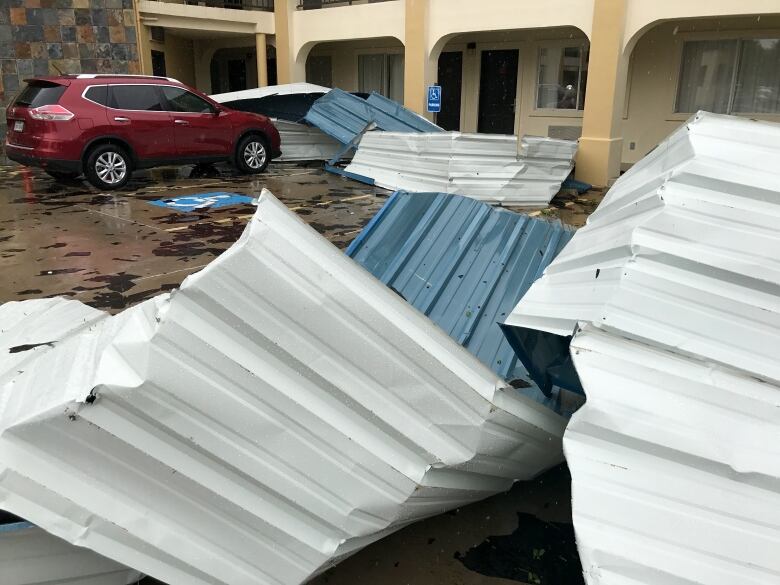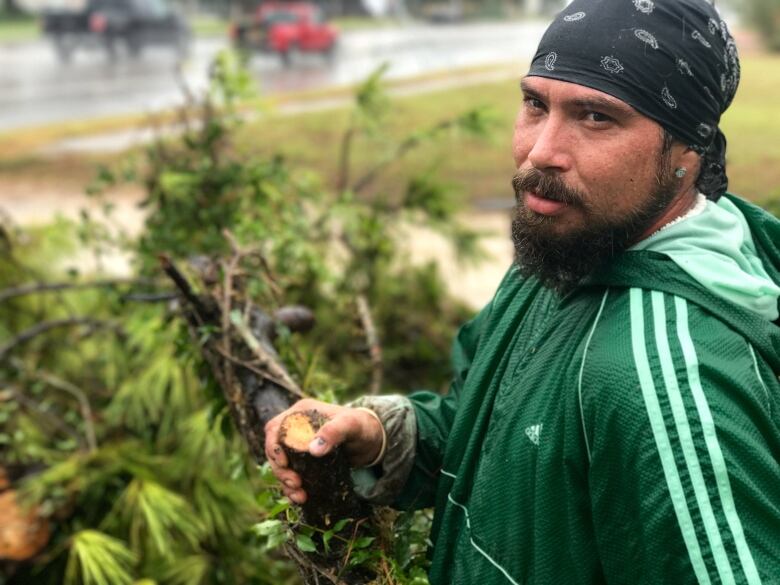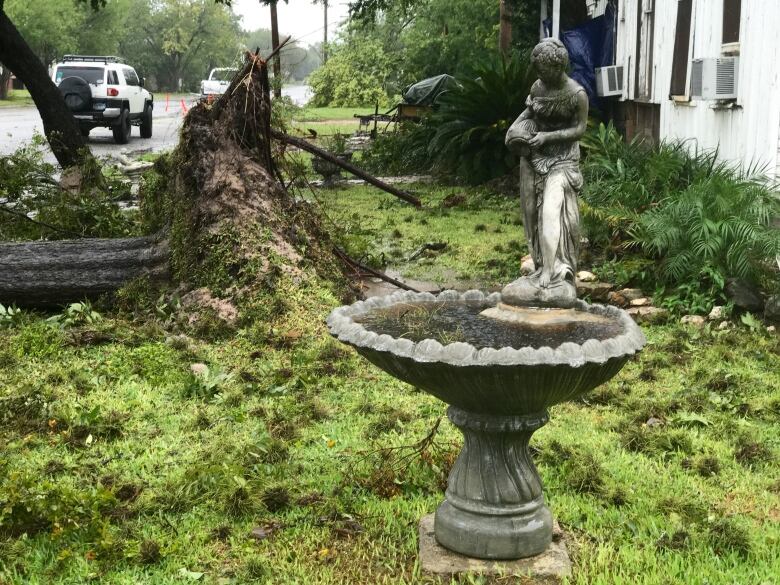'It was blowing the roof off just sheets at a time'
Fears grow that tropical storm Harvey may turn Cuero, Texas, southeast of San Antonio, into an island

Rain dripsonto an unfinished waffle inside an abandoned hotel room. Though parts of the roof lie in a tangle in the parking lot, with others caught in nearby trees, the room's air conditioner whirs gamely on, as though it were trying to cool the world.
Denis Brysongets out of his truck and strides towardsthe Executive Inn reception. He's here to return a hotel room key to a building that is no longer a hotel.

"I didn't want to take it accidentally," Bryson says, almost sheepishly. No one is inside; reception is a jumble of debris. So he wedges his room key in the door and walks back toward his truck.
Brysonhad been staying at the Executive Inn ever since he moved to Cuero, Texas, last week. His timing, he acknowledges, was poor.

On Friday, the town about 170 kilometres southeast of San Antonio issued a voluntary evacuation notice, then a mandatory one for parts of the town in low-lying areas. Bryson had nowhere else to go, so he stuck it out in the hotel until the hurricane hit.
"The winds were, I don't know how fast they were, 70, 80 miles an hour, probably more," Bryson says. Then, he says, the roof started to go and everyone was rushed out of the hotel. He shows me video he captured on his phone and shakes his head.
"It was blowing the roof off just sheets at a time," he says. "I've never felt anything like it."

Neither has Cuero. A massive gas station roof has become a lean-to, resting on its side at a 45-degree angle.The roofs of several homes are peeling, waving like arms in the wind. Some parking lots are now junkyards, full of cars smashed by heavy trees.

Josh Chapman drags one off a lawn toward a pile he and two other men have accumulated. He isn'tgetting paid to remove fallen trees. His friend has a chainsaw, and he just decided to help out. He doesn't have much else to do, because he can't go to work and he can't gohome. Rain and flood waters, he says, are slowly working their way up his front porch.
"We've lost a couple of windows, we've got water all through the house," Chapman says, leaning against a stump. "They're saying there's more to come."

The Rojos, Diego and his father Carlo, know this too well. They're attacking all the dead foliage on their street with a shovel and a rake, then carting them off in garbage bins.
"If everyone pitches in, we should be OK," says Carlo.
Three days into the storm and with worse to come, few here are taking the power of wind and water lightly. In 1998, this area flooded badly in a storm. Lesson learned: Diego says it's vital to clear the street's storm drain now before it's too late.

"All we can do is just hope for the best, because I mean this storm isn't something we can stop," he says, taking a break from his raking. "Everyone across the rail tracks,though, that's what I'm scared of. Ihope everyone evacuated."
The houses across the tracks are in low-lying areas near the Guadeloupe River. Those without friends on higher ground, like Stephanie Palmer,were forced to seek shelter elsewhere.

"When they said 'evacuate,' I didn't hesitate," Palmer says.She and her friend Brandy Patterson sort through supplies provided by the Red Cross. Palmer has diabetes, and the challenge has been keeping her medications cool.
"The new blankets they brought in were great," Patterson says to Palmer, as they head back to their sleeping area in the gymnasium.

"We got news that the Cherry Bridge is collapsing and that the dam is starting to crack," Patterson says. "We're scared about our house."
All of the highways in and out of Cueroare near waterways like the Guadeloupe River, which are rising by the minute. Already one bridge is impassable. Emergency responders and county officials are posted near all the bridges. They fear the town of Cuerocould soon become an island.












_(720p).jpg)


 OFFICIAL HD MUSIC VIDEO.jpg)
.jpg)



























































































